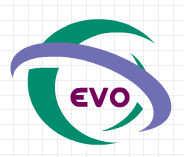 |
| Retrieved Jan. 2, 2014 |
This is my fourth Electronic Village Online (EVO) session that I participate in. As an EFL teacher, I always search for such opportunities for professional development. It doesn't only help me to know more recent trends in teaching English and update my expertise, but it also connects me to a lot of educators and teachers from all the corners of the globe. In this crazy digital age, the emphasis is shifted from “how” and “what” to learn towards the question of “where to learn.” "Where" is the buzz word of the 21st century. In other words, “the pipe is more important than the content within the pipe” (Siemens, 2004). This means that the network itself is the basis and core of the learning processes. Once learners connect to a network, they share and find new information, change what they think according to what they learned, and then connect to the network again to share their insights and experiences. In this way, learning is a knowledge creation process rather than just knowledge consumption (Kop and Hill, 2008).
 |
| Retrieved Jan. 2, 2014 |
When?
EVO Sessions 2014:
- CLIL: Using Technology for Content and Language Integrated Learning
- Crafting the e-Perfect Textbook
- Designing and Managing Projects in the ESOL Organization
- Developing Business English Teachers
- Developing Mentoring Skills
- Dream Act: What Teachers Can Do
- EVO Drama 2014: Structuring Drama Work
- ICT4ELT
- MachinEVO
- Moodle for Teachers
- MultiMOOC 2014
- NNESTEVO
- Online Tools for EFL-ESL Civic Engagement Projects
- Peacebuilding for Language Learners
- Podcasting for the ESL-EFL Classroom
- Teaching English to Young Learners and Teenagers
- Use of Mobile Applications in Language Classes
- Wonderful Words: Vocabulary Matters
I know that these sessions above are tempting. You can sign up for all of them, but it is recommended to participate no more than two sessions. This will help you enjoy learning, sharing and creating your own networks to extend communication later.
References:
- Kop, R. and Hill, A. (2008). Connectivism: Learning theory of the future or vestige of the past? International Review of Research in open & Distance Learning, 9 (3), pp. 1-13.
- Siemens, G. (2004). Connectivism: A learning theory for the digital age. International Journal of Instructional Technology & Distance Leaning, 2 (1). Retrieved Jan. 2, 2013 from http://www.itdl.org/journal/jan_05/article01.htm.


No comments:
Post a Comment